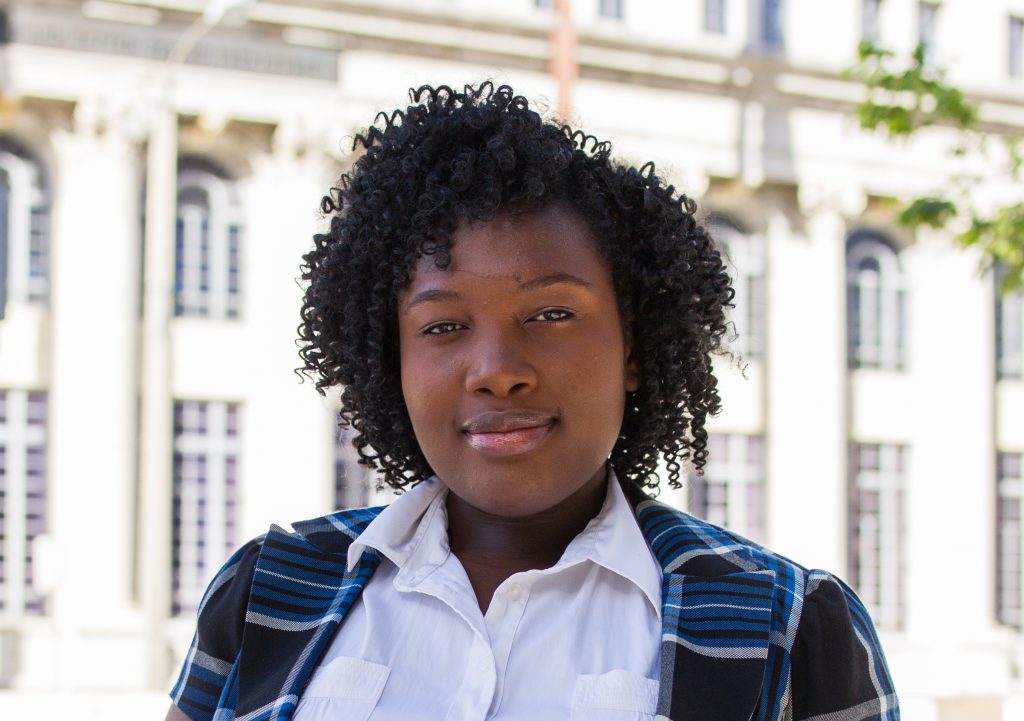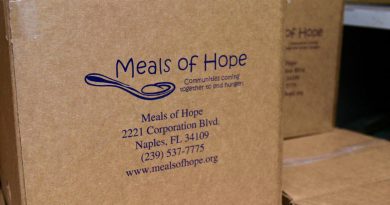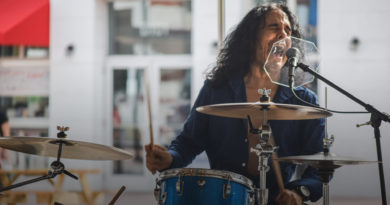Trump Administration Terminates Temporary Protected Status For Haitians
It was 4:30 p.m. on a Tuesday and Fedelene Camille wanted to climb onto the roof of her house.
A common practice in Haiti, the then-12-year-old went to the rooftop to relax after a long day in seventh grade. After climbing up the side of the house, she reached the top and took a moment to breathe.
Then the earthquake hit.
Camille, a sophomore at Wolfson Campus, has been under Temporary Protected Status since the 2010 disaster. However, Secretary of Homeland Security Elaine Duke announced the termination of the program on Nov. 20, deeming that the harsh conditions from the earthquake no longer exist.
“Since the 2010 earthquake, the number of displaced people in Haiti has decreased by 97 percent,” read a statement by the Department of Homeland Security. “Significant steps have been taken to improve the stability and quality of life for Haitian citizens, and Haiti is able to safely receive traditional levels of returned citizens.”
The program is set to end in 18 months to allow Haitians under the protected status to prepare for their departure by July 2019. According to the Center for Migration Studies, more than 32,000 Haitians under TPS reside in Florida. It was signed into law by former President George H. W. Bush in 1990 to grant protection for people who fled their countries from dangerous conditions such as natural disasters and violent conflicts, allowing them to live, work and study in the United States.
The government’s decision to end the program has put the future of many Haitian residents in doubt.
“I’m not even worried about if I get [sent] back to Haiti. I’m scared for my education,” Camille said. “I won’t be able to move up and I won’t be able to achieve my goals.”
That ambition has been with Camille since the day of the earthquake. After attempting to enter her home during the natural disaster, she fell from a staircase and landed on her leg, suffering internal bleeding. Her family spent two weeks travelling between make-shift hospitals called “tents.” Camille was repeatedly turned away because they determined her injury was not as serious, she said.
“I could remember seeing all of the people stacked on top of each other—dead bodies,” Camille said. “As I was going from tent to tent and nobody could help me, I realized God was helping me.”
Arriving In The US
When she arrived in the United States under TPS, an X-Ray showed a shattered bone fragment, leading her to Joe DiMaggio Children’s Hospital in Hollywood, Florida, to receive a metal plate to bridge the gap.
After months of physical therapy, Camille enrolled at Linda Lentin K-8 Center in the fall of 2012 to complete seventh grade. Eventually, she graduated from William H. Turner Technical Arts High School’s Academy of Medical Sciences with a 4.6 GPA and gained acceptance into the Honors College at Wolfson Campus.
“I want to contribute to the place I live in, the place I reside in,” Camille said. “I don’t have dreams for myself, they’re for my community where I reside in. If this [program ends], all that goes away.”
Camille’s hard work isn’t limited to her classes. She also serves as the vice president of the Haitian Boukan Club, a forum designed to inform students about Haitian culture, and participates in cancer research at the University of Miami in partnership with ARCOS. The program allows students at Wolfson Campus to gain experience in STEM related fields, to pursue her goal of becoming a pediatric oncologist.
But now, instead of concentrating solely on her studies, she is also concerned with how TPS ending will affect other Haitians.
“If you are a human being, consider the peoples’ lives of what would happen,” Camille said. “There’s people that built a life here. There are people here who had kids. What do you say to the people whose kids are citizens?”
The decision to end TPS for Haitians has spurred a number of petitions and denouncements with criticism centered on the government’s focus on the condition of Haiti rather than the lives of those with TPS.
“The administration, when looking to renew TPS, weren’t looking at the impact locally. They were just looking to see where Haiti recovered,” said Adonia Simpson, the director of the family defense program at Americans for Immigrant Justice. “It’s not taking into [account] the impact of people returning to a country they don’t know.”
The Future
Camille, a recipient of TheDream.US national scholarship, credits MDC with allowing her to continue her education. However, she feels like the issue of TPS is being ignored compared with the rescindment of the Deferred Action for Childhood Arrivals program.
“It’s frustrating because people don’t understand what TPS is,” Camille said. “At the school, they’re always talking about DACA students. TPS students are never recognized.”
According to the registrar, MDC does not list any currently enrolled student with TPS. Instead, Camille is listed as an “unspecified refugee/asylee.” Juan Mendieta, director of communications for the college, says MDC remains committed to ensuring the safety of all students.
“Just like with DACA students, at MDC, we believe education is a universal right,” Mendieta said. “We believe that everyone should be respected and valued regardless of race, ethnicity, gender, religion, sexual orientation or immigration status. We have been very public with this and have hosted several rallies and community events.”
In spite of these setbacks, Camille remains headstrong about her future— wherever it may be.
“Haiti is my home country and I reside in the United States, but the world is my home,” Camille said. “They can’t hold me back.”




